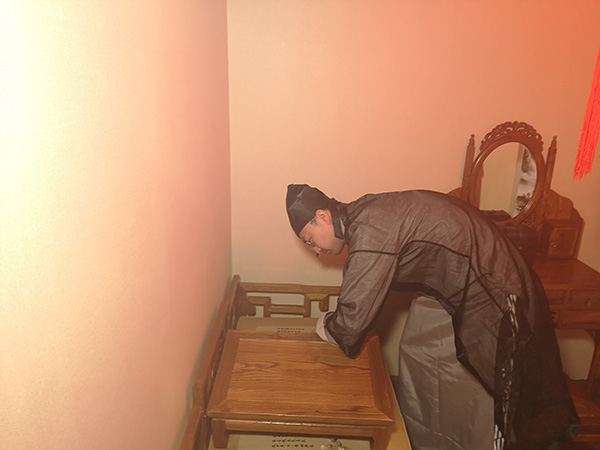A room with a clue
By Jiang Yijing | China Daily | Updated: 2019-05-22 09:53

A trend riding high
With China's reform and opening-up, people are exposed to more and more types of leisure and entertainment as well as social choices. At the end of the last century, karaoke bars and dance halls were the most popular places for young people to gather, while with the introduction of the internet, so-called wangba, or internet bars, became the next big thing, especially for young men who love playing computer games.
And this recent boom in location-based entertainment is a trend, not just in first-tier cities, but in many inland cities like Changsha and Chongqing, according to Mi Shouchun, secretary-general of China Real Games Association under the China Culture and Entertainment Industry Association. There are nearly half a million Chinese who love to play such games.
"We estimate there are about 400,000 enthusiasts who play such location-based detective games very often around China," Mi says.
"These players post photos of the game on social media platforms such as WeChat and Sina Weibo, which in turn attracts more players."
Mi attributes the popularity of location-based entertainment to the personalized character of today's young people, saying that compared with older generations who appreciate one person's performance such as singing in karaoke, these young people prefer to fully interact with one another and express their opinions rather than just do a one-person show and otherwise be an audience member once offstage.
Increased incomes also help explain the trend. The location-based game needs more time, space, as well as money to build, with the average cost per player demanding around 200 yuan ($30) - triple the price of karaoke.
Lu Yin, co-founder of Subo, a location-based entertainment company, got into the business in 2017. He also sees the location-based detective games as a growing industry.
According to reviews on Dazhong Dianping, a popular Chinese shop review website, Subo is among the most popular location-based entertainment venues in Beijing.
About 8,500 people bought tickets from Dazhong Dianping to play detective games at Subo, located in Chaoyangmen, Beijing, since July. Lu says that tickets for Fridays, Saturdays, and Sundays are always hard to purchase. Sometimes people have to book weekend playing slots days in advance.
"Though the digital world develops quickly, I believe offline socializing is always necessary, and people's need for face-to-face fun and interaction will definitely increase," says Lu.
Usually a location-based game needs a room of at least 50 square meters to build a scene. In Subo, which sprawls across 463 square meters, there are three location-based rooms for different scenarios.
Lu says that in order to provide veteran players with more choices, his team has obtained or created hundreds of scenarios, but to ensure the quality of each story, they still need more time to adapt the new scenarios to fit the location.
They are also finding ways to make individual games suitable to be played for multiple times by the same team of players.
However, players may have other opinions.
Hao says that he would always choose a new game rather than squander a whole afternoon and hundreds of yuan on an old scenario he has played before, even with some variation.
"I come for new experiences, so why should I press the replay button?" Hao asks.
























